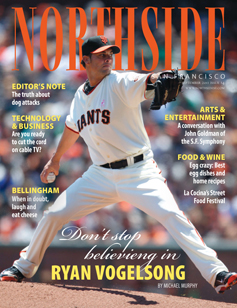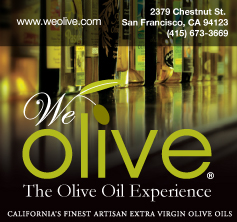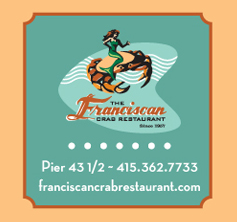An age of kindness is soon behind us. The Golden Gate Bridge District, in all of its wisdom, is eliminating the toll takers. Human faces will disappear from the bridge. Come September, all 32 toll takers, full-time and part-time, will be gone. A toll taker makes between $48,672 and $54,080 a year. The bridge district says it can save $16 million over a 10-year period by getting rid of the humans in the toll booths. FasTrak will be the order of the day.
Is it really worth it?
No more may you say hello to the friendly toll taker who has taken your money over the years. On the television news, tears streamed down a female toll taker’s face as she recounted her experiences on the world’s most famous bridge. She is being dismissed after decades on the job that she loves.
No one will be there to answer questions from confused tourists. No one to assist when someone is attempting to jump off the bridge. No one to accept a loyal and grateful commuter’s cookies or a bottle of wine. Not grateful for the six-dollar toll, but grateful for a cheerful greeting that thousands became accustomed to over the years. It was a good way to begin the day. And there will be no one who will smile knowingly when a driver says, “I want to pay for the car behind me, too.” It often set off chain reactions with dozens of drivers paying for others.
These seemingly spontaneous actions caught on back in the 1980s. They became part of a movement called Random Acts of Kindness. The Golden Gate Bridge was a focal point for this feel-good fad. When I tell people the toll takers will be eliminated to save the bridge district money as it faces an $89 million deficit, I often hear, “But what will happen to the Random Acts of Kindness?
But these are not kind days. What would Anne Herbert say?
The story goes that Anne, a Bay Area poet, was in a Sausalito restaurant in 1982 or 1983 when she dashed off a lyrical line on a placemat. It read, “Practice random kindness and senseless acts of beauty.” Somehow this sentiment struck a chord. The message picked up momentum. It became part of the culture. It would have been all over Twitter, had there been Twitter back then. Anne said that random acts of kindness takes many forms – writing a grateful note to an old school teacher, or doing something good for someone without taking credit for it. Yes, today people volunteer to help others, clean up graffiti, or pick up trash on the beach.
But, for some reason, to show generosity at the toll booth on the Golden Gate Bridge holds a special cachet. It only enhances the bridge’s unique history.
That history is long and grand. Not so grand for everyone, of course.
Clem Mathis, the brother of the famous Johnny Mathis, became the first black toll taker on the bridge in 1961. I’m not sure how commuters reacted to seeing integration appear right in their faces. I’m sure Clem could have used some sort of act of kindness. Not likely he got it. Word is he suffered a lot of cruel treatment on the job for being African-American.
The people at the bridge district say the recession has hit them, too. People are losing their jobs, therefore that makes for fewer commuters. That means a reduction in revenue. Also the district agreed to kick in $75 million for the Doyle Drive improvement project.
The toll takers are paying for it. Is it worth their jobs? I don’t think so. The district should err on the side of humanity. Just this once. They owe it to Clem Mathis. FasTrak may be part of the new world order, but what sort of track are we on these days?
Bruce Bellingham is also a writer for the Marina Times. Write to him: bruce@northsidesf.com.
You don’t have to say anything kind. Not if you don’t want to.
The Final Word








